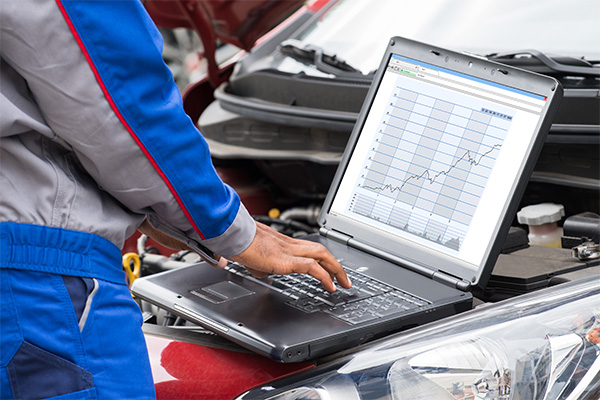The classic “tune-up” was the quintessential core of routine maintenance in the automotive industry for generations. Traditionally the phrase “tune-up” was a fairly universal term that referred to the routine replacement of a number of crucial components of a vehicle’s ignition system, such as filters, ignition points and spark plugs. It also included a few standard adjustments, or “tuning”, that were made to help the vehicle’s engine run at peak performance levels like ignition timing and adjusting the carburetor’s air-fuel mixture (A/F) and idle speed settings.
In the 1970s and 1980s the demand for lower emissions and better fuel economy lead automotive manufactures to replace a variety of ignition and fuel system parts (specifically ignition points, fuel filters and carburetors) with more efficient electronic alternatives, thus eliminating the need for many aspects of the traditional tune-up. The result was that the once universally understood concept of what a tune-up entailed transformed. This transformation was so dramatic that today, if you were to ask 10 different drivers what their definition of a tune-up is, you’d likely get 10 different answers…there are even a lot of vehicle owners that believe that regular tune-ups are entirely unnecessary on modern vehicles, a common misconception.
Because of just how drastically vehicles have changed over time, the Car Care Council (a national, non-profit organization dedicated to “educating motorists about the importance of regular vehicle care, maintenance and repair”) introduced the concept of a 21st Century Tune-Up back in 2005 as part of an effort to re-define and educate motorists on what a tune-up should consist of on a modern vehicle.
A 21st Century Tune-Up of the modern automobile includes a thorough inspection (both visually and with the aid of computerized diagnostic equipment) of the following systems:
- Battery, Charging and Starting
- Engine Mechanical
- Powertrain Control (including onboard diagnostic checks)
- Fuel
- Ignition
- Emissions
Additionally, be sure to replace your vehicles spark plugs, air filters, fluids and cabin filter as per the manufacturer’s recommendations.
From 1965-2005 the processing power of computers increased 1 trillion-fold! This wave of exponential advancements in technology has given way to a steady increase in the number of computerized systems present in vehicles. In fact, the average new car today contains anywhere from 30-100+ highly sophisticated microprocessors that can simultaneously monitor and control everything from a vehicle’s ABS anti-lock brakes and airbags to fuel injection and spark plug firing rates. As impressive as the modern automobile is, in all its technological glory, it is essential to acknowledge that all the technology in the world can’t replace good ol’ fashioned routine maintenance!
As Executive Director of the Car Care Council, Rich White puts it, “There is a misconception that today’s modern vehicles don’t need tune-ups because they never break down, but that simply is not true. If you’re at work and your computer goes down, you can’t get any more work done. It’s the same with your vehicle. If the vehicle isn’t being properly maintained, you’re not going to get where you want to go.”
